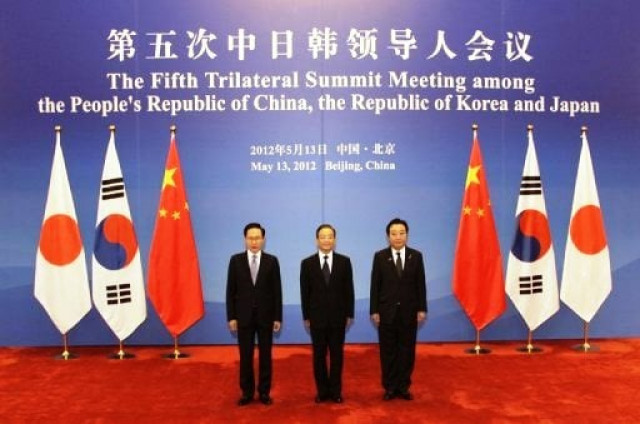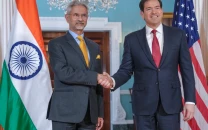N Korea absent from China summit declaration
Official says China, Japan and South Korea not able to agree on suitable wording for declaration of cooperation.

Japanese Prime Minister Yoshihiko Noda and South Korean President Lee Myung-bak are in Beijing for a trilateral summit and both told reporters of the need to prevent "provocations" from Pyongyang after the main meeting on Sunday.
But a Japanese official told AFP on Monday that China, Japan and South Korea were not able to agree on suitable wording for the 50-point declaration of cooperation issued after the summit -- hosted by Chinese Premier Wen Jiabao.
"Of course there was agreement on issues such as avoiding escalation and further North Korean provocation," said the official, who was accompanying Noda and refused to be named.
"But on the exact phrasing of the paragraph and how it should be included in the declaration, there was no agreement."
The official declined to go into detail about the disagreement over the wording, but China -- North Korea's most powerful foreign friend -- is generally believed to favour a cautious policy towards the isolated regime.
Fears of a third North Korean nuclear test have grown following a failed rocket launch by Pyongyang last month that the United States and its allies said was a disguised ballistic missile test banned under UN resolutions.
Satellite photos have recently shown work in progress at the Punggye-ri nuclear test site, and as such Pyongyang's atomic and rocket programmes had been expected to be high on the agenda for the summit.
Lee said Sunday that the three countries had agreed that they would "not accept" further North Korean nuclear tests.
Noda, meanwhile, called on the three countries to strengthen cooperation in order to "further prevent provocations" by North Korea in future, while Wen urged involved parties to "use their wisdom" and "keep patient".



















COMMENTS
Comments are moderated and generally will be posted if they are on-topic and not abusive.
For more information, please see our Comments FAQ